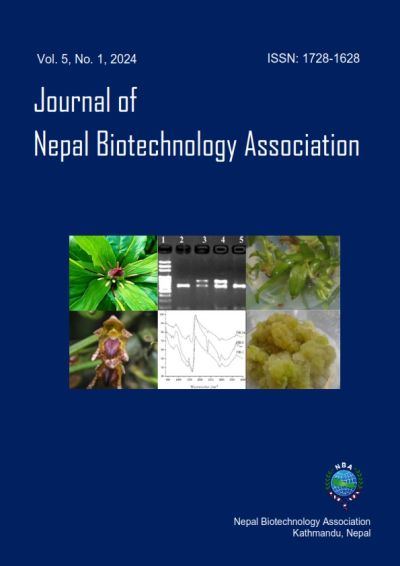Association between Vitamin D Receptor Fokl and Bsml Gene Polymorphism and Diabetes Mellitus in Nepalese Population
DOI:
https://doi.org/10.3126/jnba.v5i1.63745Keywords:
Diabetes Mellitus, PCR-RFLP, Vitamin D ReceptorAbstract
Vitamin D being involved in the secretion of insulin is a known fact. Moreover, studies have shown that steroids might be a factor in influencing insulin sensitivity. Vitamin D receptor (VDR), a factor required for genetic regulation involving vitamin D, thus can be regarded as a good candidate for Diabetes Mellitus (DM). Several studies have been conducted on the association between VDR polymorphism and the risk of DM but did not provide clear-cut answers. This study was conducted to search for the involvement of FokI and BsmI polymorphisms of the VDR gene with DM in a Nepalese population. A total of 200 blood samples were collected; 100 from clinically diagnosed DM patients and 100 from healthy controls. DNA was extracted from blood by polymerase chain reaction-restriction fragment length polymorphism (PCR-RFLP) analysis, where FokI and BsmI primers as well as restriction enzymes were used. After restriction digestion, SNPs of FokI (T/C) [rs2228570] and BsmI (A/G) [rs1544410] were assayed using agarose gel electrophoresis. As patients and controls were likened for genotype distribution and allelic frequencies, it was found that the frequency of VDR gene BsmI rs1544410 differed significantly (p < 0.05, each) between cases and control whereas A allele was dominant (91%) in healthy controls with Odd ratio (OR) of 0.55, unlike VDR Fokl were not significantly associated between subjects and control. The data obtained from this research suggests that the VDR gene (especially BsmI) is associated with the risk of DM.




